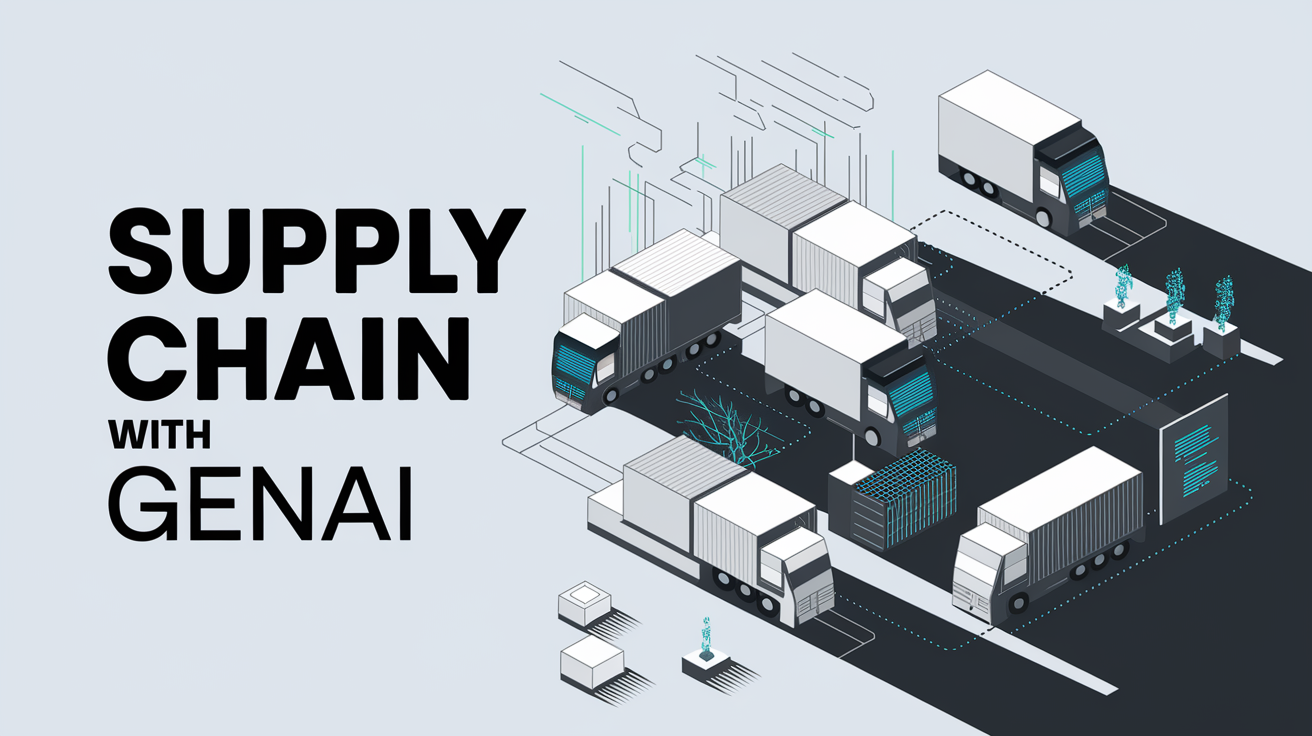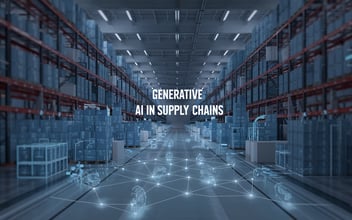
Introduction
Real-time decision-making has become a critical component of supply chain management in today’s dynamic and unpredictable business environment. Delays in addressing disruptions, misjudging market demands, or failing to identify risks can lead to costly consequences. Traditional decision-making approaches, which rely on static data and manual processes, often fall short in addressing the complexities of modern supply chains.
AI offers a game-changing solution by providing actionable insights, enabling proactive problem-solving, and streamlining decision-making processes. With AI, businesses can achieve greater agility, mitigate risks, and respond swiftly to challenges, ensuring that their supply chains remain resilient and competitive. This article explores the transformative role of AI in real-time decision-making, highlighting its key applications and benefits.
Proactive Problem Identification
- Supply chain disruptions, such as supplier delays or route bottlenecks, often go unnoticed until they escalate, leading to significant losses.
- AI systems continuously monitor data streams from multiple sources, detecting anomalies and potential disruptions in real time.
- Businesses can address these issues proactively, reducing downtime, minimizing costs, and ensuring consistent operations.
- By identifying risks early, AI enhances supply chain resilience and prevents costly disruptions.
Scenario Simulation and Decision Support
- Supply chains operate in complex environments where manual decision-making struggles to consider all variables, such as supplier changes, demand fluctuations, and geopolitical risks.
- AI-driven simulation tools evaluate multiple scenarios, providing insights into the potential outcomes of various decisions.
- This enables businesses to choose optimal strategies, balancing cost, efficiency, and risk while responding quickly to changing conditions.
- Data-driven decision-making improves agility and ensures supply chains remain competitive in dynamic markets.
Unified Dashboards for Operational Visibility
-
Fragmented data across different supply chain nodes creates blind spots, making it difficult to identify inefficiencies and delays.
-
AI platforms consolidate this data into unified dashboards, providing real-time visibility into inventory, logistics, and production.
-
This centralized approach enhances collaboration across teams, streamlines operations, and enables faster decision-making.
-
Businesses can quickly identify inefficiencies and take corrective actions, improving overall supply chain performance.
Risk Management and Mitigation
- Natural disasters, supplier failures, and other risks can severely disrupt supply chain continuity.
- AI predicts potential risks and recommends actionable strategies, such as supplier diversification or inventory reallocation.
- Businesses can minimize the impact of disruptions and maintain consistent performance through AI-driven risk management.
- Proactive mitigation enhances supply chain resilience and customer satisfaction.
Case Studies
-
- Logistics: A global logistics provider used AI to predict route disruptions, saving $2 million annually by rerouting shipments efficiently.
- Retail: A retail company leveraged AI simulations to optimize sourcing strategies, reducing lead times by 15% without increasing costs.
- Manufacturing: A food manufacturer adopted AI-powered dashboards, reducing waste by 18% and improving order fulfillment rates by 12%.
- Technology: A tech company predicted supply chain risks during a semiconductor shortage, securing alternative suppliers and maintaining production schedules.
Challenges and Considerations
- High Implementation Costs: Initial investment in AI platforms and integration may be challenging for smaller companies.
- Complexity of Integration: Integrating AI into existing supply chain systems requires expertise and can be time-consuming.
- Reliance on Data Quality: AI is only as effective as the data it uses; poor data quality can limit its capabilities.
- Employee Transition: Employees may need retraining to adapt to AI-driven workflows, which could temporarily affect productivity.
While these challenges exist, the transformative impact of AI in real-time decision-making often justifies the investment.
Conclusion
AI empowers businesses to make better, faster decisions by identifying problems early, simulating scenarios, and improving operational visibility. With these capabilities, companies can enhance supply chain agility, mitigate risks, and improve customer satisfaction. As AI technology advances, its role in real-time decision-making will only grow, empowering businesses to thrive in complex global supply chains.
Posted by PDI Marketing Team
Pacific Data Integrators Offers Unique Data Solutions Leveraging AI/ML, Large Language Models (Open AI: GPT-4, Meta: Llama2, Databricks: Dolly), Cloud, Data Management and Analytics Technologies, Helping Leading Organizations Solve Their Critical Business Challenges, Drive Data Driven Insights, Improve Decision-Making, and Achieve Business Objectives.




